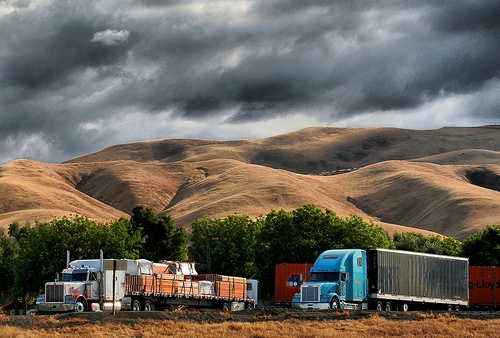
Exhaust Brakes (a.k.a. Jake or Jacobs brakes) are one proven way of reducing brake wear on heavy trucks, and increasing downhill safety. After installing one of these simple butterfly valves, the driver can effectively control downhill acceleration without using the foot brakes, which can rapidly overheat and fail under continued use. However, as well as they might work, exhaust brakes can experience failures caused by both general wear and improper usage.
The situation: A driver engages the exhaust brake, and it engages for a few seconds before releasing. This condition is usually caused by either an upstream exhaust leak, or a blown gasket. Either way, the exhaust brake is not receiving the pressure it needs to stay open. This is an increasingly common problem on many aging aftermarket exhaust brakes because they might have come with inferior gaskets from the factory.
Modern exhaust brakes generally do not vent directly to the outside like old-school units, which is why new tractor trailers only issue a steady growl when braking instead of the rifle-sharp rattling of yore. If you hear a loud rattle when the exhaust brake is engaged, then there is a leak either on the exhaust bypass, exhaust manifold or exhaust brake gasket.
The purpose of an exhaust brake is to reduce or eliminate exhaust flow completely, which means the turbo and exhaust manifold must contain all of the accumulated heat of exhaust. Factory turbo-diesel engines already have very tough iron turbo castings to deal with this heat-sinking problem, but even they can be overwhelmed and begin to melt down.
This condition can come on very quickly, especially if the engine revs too high while the exhaust brake is engaged. The friction created by a running engine and the small amount of diesel still being injected creates a great deal of heat, which the engine is unable to eliminate when the exhaust is blocked. Over-revving while on the Jake brake can lead to rapid localized overheating, and engine safety shut-down.
Though almost all modern turbo-diesels have some sort of self-protection system to intercede in the event of an overheat, even the best designed cannot cope with an uncontrolled over-rev. If the transmission is in too low of a gear for the hill to be descended, a Jake brake might apply enough force to stick the transmission in gear and over-rev the engine to the point of destruction.